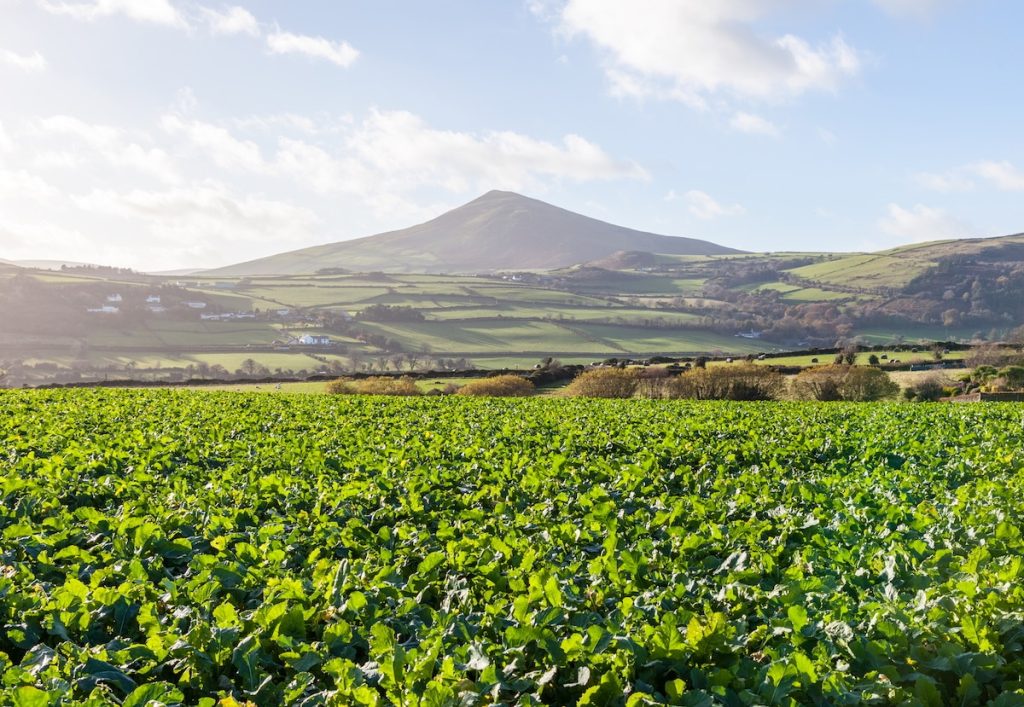
A field of leafy green vegetables, including spinach and kale, growing on the Isle of Man in the UK. pastie / iStock / Getty Images Plus

Why you can trust us
Founded in 2005 as an Ohio-based environmental newspaper, EcoWatch is a digital platform dedicated to publishing quality, science-based content on environmental issues, causes, and solutions.
Climate change is bad for food production in more ways than one. Aside from stress from extreme heat, drought and flooding, climate change is also decreasing the nutrient value in crops, according to a new study.
The preliminary research, presented this week at the Society for Experimental Biology’s Annual Conference Antwerp 2025, has revealed that higher temperatures and increasing levels of carbon dioxide in the atmosphere are leading to lower nutritional value for crops, especially for leafy greens. The findings build upon previous studies that have considered how a warming world could impact crop yields.
“Our work looks beyond quantity to the quality of what we eat,” said Jiata Ugwah Ekele, doctorate student at Liverpool John Moores University in the UK, as reported by ScienceDaily.
Ekele and her research team grew leafy crops, such as spinach, kale, and arugula, in labs with climate controls to mimic projected warming and greenhouse gas emission scenarios in the UK.
“These environmental changes can affect everything from photosynthesis and growth rates to the synthesis and storage of nutrients in crops,” Ekele explained.
Then, the nutritional value of the crops was analyzed using high-performance liquid chromatography (HPLC) and x-ray fluorescence. With lower levels of warming and increased carbon dioxide, plants grew larger, but still had lower nutrient levels, including declines in calcium and some antioxidants.
With higher increases in warming and carbon dioxide, plants not only lost nutritional value at a greater scale, but they also did not grow larger as they had in the lower warming and carbon dioxide scenarios.
However, different crops responded in different ways, with variances of particular nutrients. Ekele noted that higher carbon emission levels could lead to higher sugar levels in crops, yet lower levels of essential nutrients.
“It’s not just about how much food we grow, but also what’s inside that food and how it supports long-term human wellbeing,” she said.
The research is still underway, and Ekele’s research team is seeking collaborators to further explore these nutritional changes in crops to better inform policies and procedures that are resilient to climate change and its effects.
“As the climate continues to change, we must think holistically about the kind of food system we’re building — one that not only produces enough food, but also promotes health, equity, and resilience,” Ekele said. “Food is more than just calories; it’s a foundation for human development and climate adaptation.”
Previous research has found that climate change is already threatening some of the world’s major crops, such as soybeans, rice and wheat. Another study focused in the UK found that the country’s existing crops like strawberries and onions could become less viable for growing in the region under 2 degrees Celsius warming, and farmers may need to switch to growing different, non-native crops under higher warming scenarios.
Subscribe to get exclusive updates in our daily newsletter!
By signing up, you agree to the Terms of Use and Privacy Policy, and to receive electronic communications from EcoWatch Media Group, which may include marketing promotions, advertisements and sponsored content.







